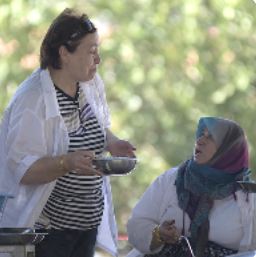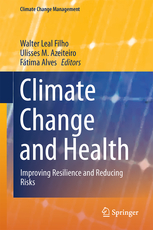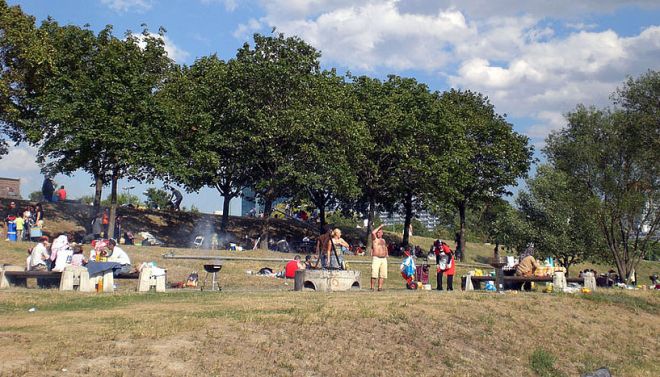Presentations at international conferences
Oral Presentation
“Heat Vulnerabilities in Urban Migrant Communities: A Mixed-Methods Study from Vienna” Third ISA Forum of Sociology, July 10-14 2016, Vienna.
Oral Presentation
“Are certain social groups affected differently by urban heat waves? An intersectional pilot study on persons with Turkish migrant background in Vienna”
17th Austrian Climate Day, April 6-8 2016, Graz.
Oral Presentation
“Heat Vulnerability, Poverty and Health Inequalities in Urban Migrant Communities: A Pilot Study from Vienna”
World Symposium on Climate Change Adaptation, 3-5 September 2015, Manchester.
Oral presentation
“Elderly and migrants under urban heat pressure – Results of two climate change adaptation studies”
European Climate Change Adaptation Conference (ECCA), 12-14 May 2015, Copenhagen
Workshops
Workshop with stakeholders, intermediaries and beneficiaries
The first workshop was carried out at the University of Natural Resources and Life Sciences on February 17th, 2016. Eleven experts and stakeholders from different disciplines (members of the Vienna City Administration in the field of environmental protection and public health services, representatives of migrant organisations, the Austrian Red Cross and the Viennese Area Renewal Office as well as researchers in the field migration) took part. The aim of the first workshop was to present the first survey results, discuss them and develop adaption measures and recommendations to make summer heat in the city more bearable for migrants. The workshop started with an overview of the project aims and a presentation of first results of the qualitative interviews and an overview of the two quantitative studies. Based on this input the participants discussed the following main topics during two round tables:
– Identification of stakeholders and sectors of the Vienna City Administration which/who are responsible for the issue “heat and migrants” in Vienna
– Improvement of the awareness raising among multipliers and medical doctors
– Development of information strategies for migrants
– Identification of measures to prevent private residences from overheating; focused on homes, where migrants are living (best practice examples)
– Implementation of measures in public/green spaces to improve life quality of migrants during the summer heat in the city; improvement of the access to distant green spaces for migrants
The discussion points are being transferred into a first list of implementation measures which will be worked on and specified in a second stakeholder workshop.







